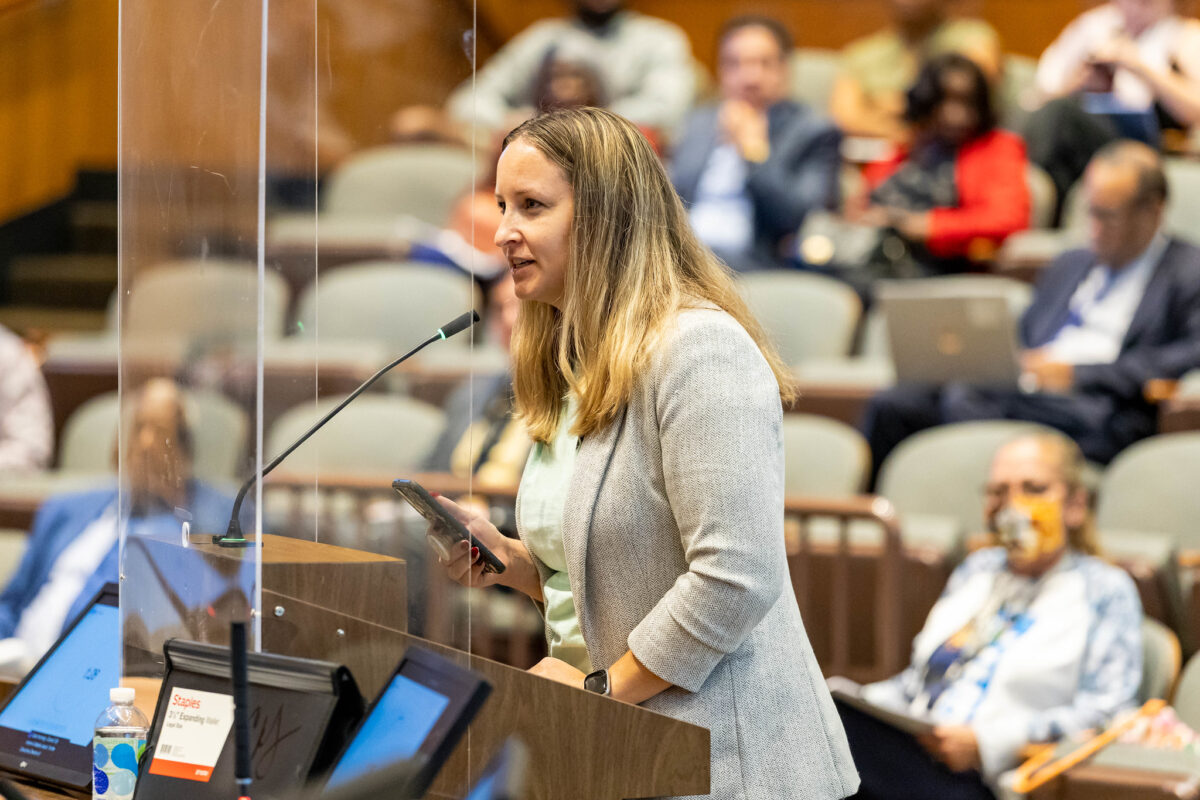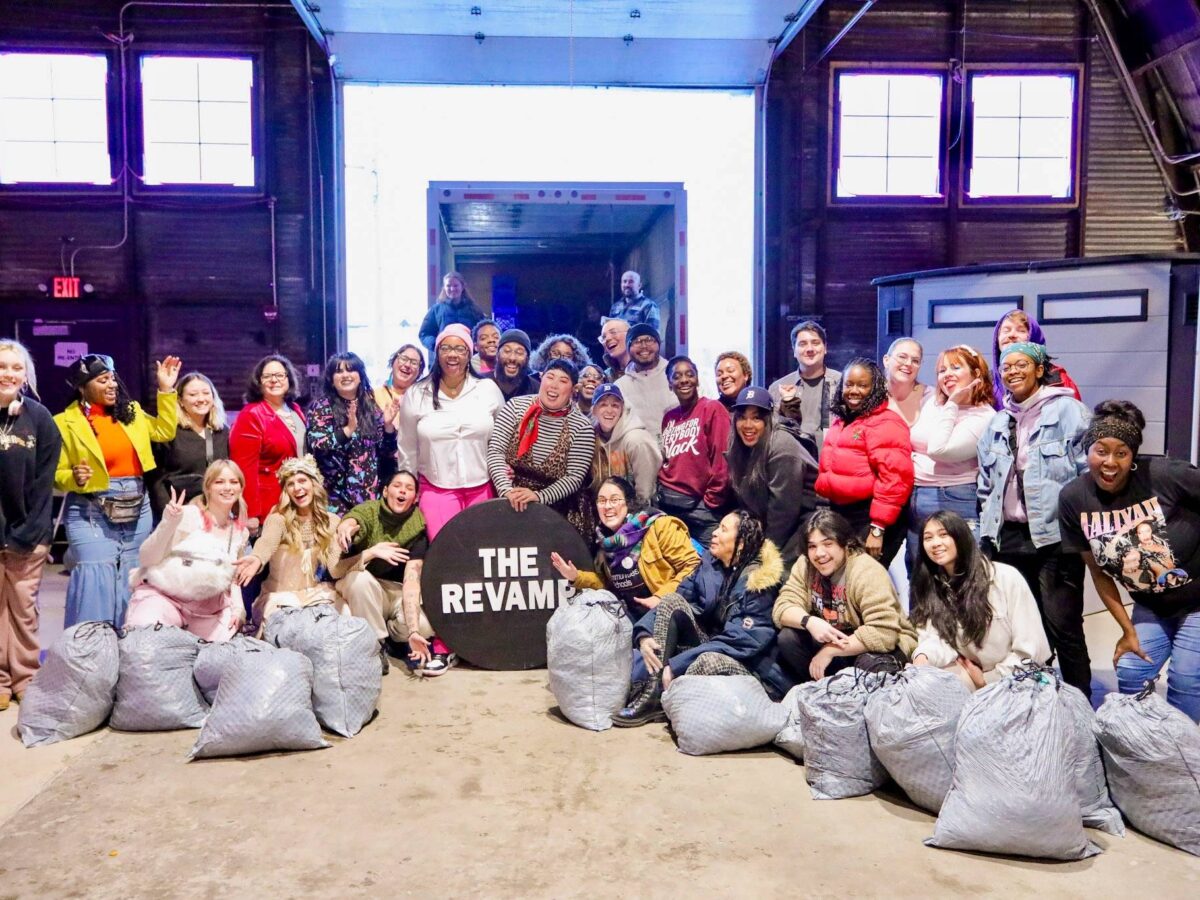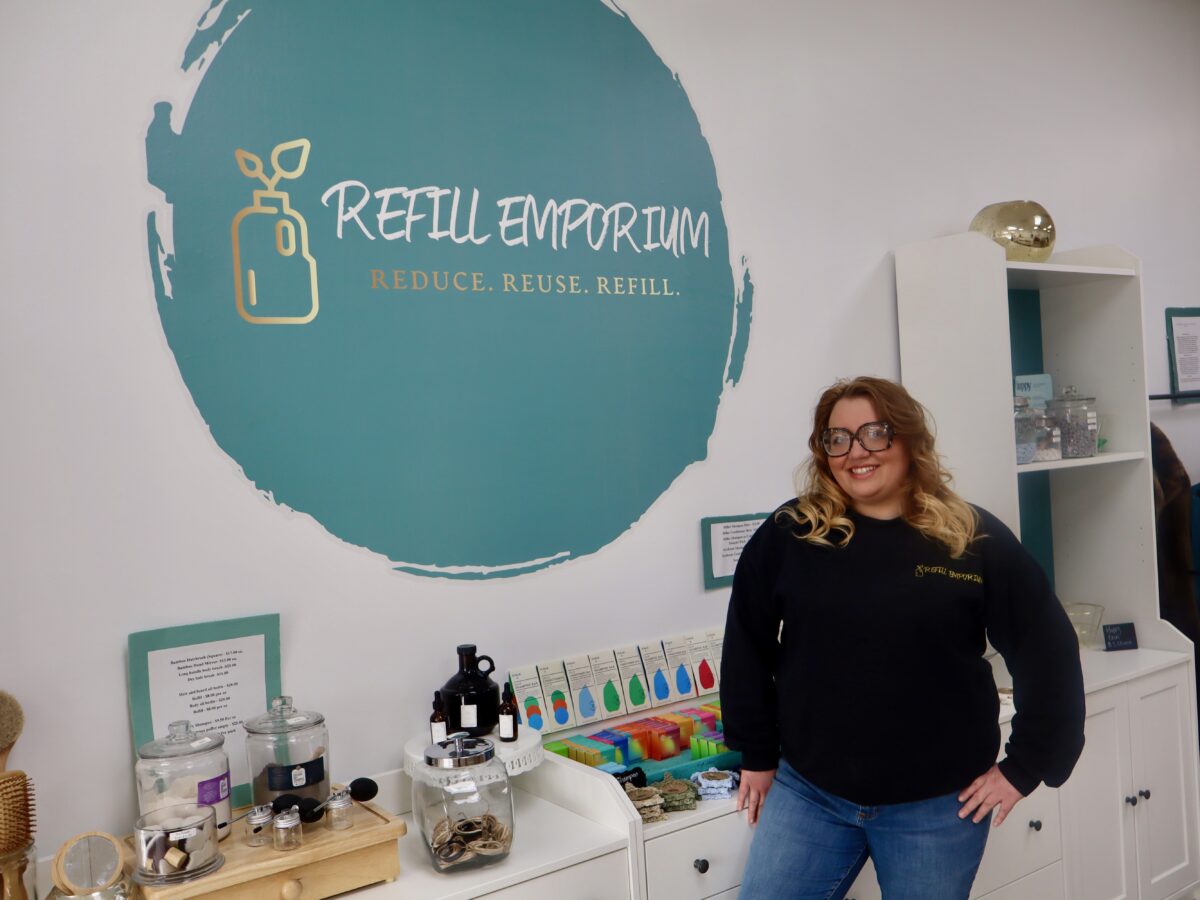Overview:
- Michigan's ban on municipal plastic bag bans took effect in 2017.
- Detroit City Council votes unanimously to support a repeal of the law.
- "It costs millions throughout the state of Michigan to manage and maintain single use plastic," says City Councilmember Scott Benson.
Detroit City Council unanimously passed a resolution on Tuesday to support the repeal of a state law that bars local jurisdictions from regulating plastic packaging.
This so-called ban-on-bans, PA 389, was passed by the Republican-controlled Legislature in 2016 to keep municipalities from outlawing plastic bags and other containers.
Councilmember Scott Benson, chairman of the city’s Green Task Force, said plastic bags are “the bane of our recycling attempts,” gumming up equipment.
Microplastics and nanoplastics from broken down plastic are a serious public health threat, he said.
“It costs millions throughout the state of Michigan to manage and maintain single use plastic,” he said.
The resolution calls attention to the threat posed by microplastics and nanoplastics, which can cross the blood-brain barrier and have been found in human brains, placentas, mammary glands, and testicles.
Microplastics are associated with various types of cancer, nerve cell damage, reproductive problems, and other health issues.
More than 22 million pounds of plastic waste wind up in the Great Lakes every year, according to a 2016 study by the Rochester Institute of Technology.
Microplastics contamination is ubiquitous in all five Great Lakes, according to a review of scientific literature from the Journal of Great Lakes Research.
Michigan legislators introduce bills to repeal state’s ban
Detroit’s Office of Sustainability offered support for the resolution in a statement: “The repeal will allow municipalities to make thoughtful decisions about how to best manage materials and the costs they create.”
KT Andresky, co-chair of the Green Task Force’s state and local policy subcommittee, told the city council there is no good disposal route for plastic. Reducing single use plastic is the most effective means of avoiding the costs associated with handling plastic in the waste stream and environment, she said.
The green task force is working on policies that reduce fossil fuel extraction for plastic production and centers non-toxic circular systems, including non-toxic reuse.
more coverage
Detroit’s ReVamp clothing swap makes the world more sustainable, 1 party at a time
Amanda Sweet leads The ReVamp, a clothing swap collective that empowers communities by promoting sustainability and fostering connections, diverting textile waste and offering a creative space for social engagement.
The sustainable art of Blight Hernandez: ‘No waste’
Blight Hernandez credits his grandmother for his artistry. “She gave me those taste buds for the regal, the antique, the vintage, almost like Detroit Renaissance,” he says.
Metro Detroit’s refilleries offer easy eco-swaps for daily essentials
In Metro Detroit, refilleries like Refill Emporium, 86 Plastic Co, and MI-Fillosophy are empowering consumers to embrace sustainability. By offering eco-friendly, locally sourced products, these stores educate and enable individuals to make simple, impactful changes in their daily lives.
Natalie Jakub, executive director of the nonprofit Green Living Science, said it’s important for the city to take back control to do what is best for the community.
“In doing so, we can set an example for our peer communities in other parts of the country so that they can follow,” she said.
In March, State Rep. Morgan Foreman (D-Pittsfield Township) and State Sen. Sue Shink (D-Northfield Township) introduced HB 4299 and SB 195 to overturn PA 389.
🗳️ Civic next steps: How you can get involved
Why it matters
⚡ Plastic pollution creates problems for waste processing, human health, and the environment. In 2016, Michigan legislators passed a bill preempting local jurisdictions’ ability to ban plastic bags and other containers.
Who’s making civic decisions
🏛️ Legislation has been introduced in the Michigan House and Senate to repeal the state’s ban-on-bans for plastic bags.
How to take civic action now
- 📩 Call or email your state representative or state senator.
- 📣 Ask your elected officials if they plan on supporting legislation to overturn PA 389.
What to watch for next
🗓️ Votes by the Michigan Legislature on a repeal of the state’s ban-on-bans for plastic bags.
Civic impact
🌍 Engaging in this issue could help shape how waste is regulated and whether cities have the power to manage plastic differently.
⭐ Please let us know what action you took or if you have any additional questions. Please send a quick email to connect@planetdetroit.org.





